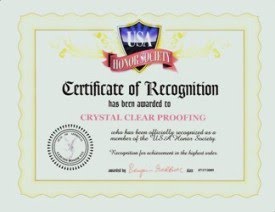

THE HYPHEN: A NEVER-WERE-THERE-SO-FEW-SOLID-RULES PUNCTUATION MARK
You can use a hyphen to split a word at the end of a line, but you can also use a hyphen to join compound words.
The rules about when to hyphenate a compound word are extremely vague. The problem is that compound words go through an evolution from open compound (two separate words), to hyphenated compound, to closed compound (one word with the two parts together)—and sometimes back again—and the changes can seem arbitrary. For example, when the Shorter Oxford English Dictionary was released in 2007, it eliminated sixteen thousand hyphenated words. Some words (leap-frog) advanced to closed compound form (leapfrog), and other words (pot-belly) reverted back to open compound form (pot belly). The best advice is to consult a dictionary when you aren't sure whether to hyphenate a compound.
In very general terms, you use a hyphen to avoid confusion. For example, when two adjectives modify a noun, sometimes the sentences could be read two ways or be initially confusing to a reader, so you can use a hyphen to clarify which words to together:
Paula wanted a short haired dog.
(Could be read to mean that Paula wanted a short dog with hair.)
Paula wanted a short-haired dog.
(More clearly means that Paula wants a dog with short hair.)
A hyphen also eliminates confusion when it is used to clarify pronunciation:
I need to re-press my jeans.
I need to repress those memories.
Often a hyphen is used between two adjectives that come directly before the noun they modify, but not when they come after the noun they modify:
They are in a long-term relationship.
They are in it for the long term.
Despite the vast wiggle room in hyphen land, there are a few solid rules. You can confidently use a hyphen when you are joining a prefix to a word that must be capitalized, joining a letter to a word, and writing out numbers from twenty-one to ninety-nine.
Anti-American
Un-American
Pre-Mesozoic
X-ray
A-list
T-shirt
Thirty-five
Sixty-four
Ninety-three
It's fine to occasionally make up an adjective using a long string of hyphenated words for effect, but don't overdo it to the point that you become an irritating hyphenate-for-no-reason writer.
Sources: Grammar Girl, CMS


































































Great tips, Crystal! Thanks so much.
ReplyDeleteElizabeth
Thank you very much for this post! I'm glad to see some of those changes made from hyphenated compounds to non-hyphenated closed compounds were recently made. Thought I was going insane with my spell check when I could have SWORN back in elementary school there was a hyphen!
ReplyDeleteThanks again, Crystal!
Such great advice, although I am sure I will still misuse hyphens or forget to hypen is actually more my problem. Thanks for the valuable lesson!!
ReplyDeleteHyphens are something that I do have problems with. Great post. Thanks.
ReplyDeleteIs it okay to use hyphens for catch phrases, like you did at the end of your post? Like good-for-nothing?
ReplyDeleteAlex: If you were to say, "Sam is good for nothing," then no, you would not hyphenate that. However, if your hyphenated words are descriptive: "Sam is a good-for-nothing employee," then yes; that is appropriate string hyphening.
ReplyDeleteWow! Thank you for taking the time to clear up some of the confusion about hyphens. As always, a very helpful post.
ReplyDeleteThese are wonderful guidelines, Crystal, thank you! Although, I do like the idea of being an addicted-to-hyphens writer. It amuses me. Maybe I'll confine my amusement to my first drafts...
ReplyDeleteYes, good guidelines!
ReplyDeleteAnother fine tutorial, Crystal. BTW, I DID edit my post today, lol. You were right about the negative connotaion in the use of "admonish." (wink)
ReplyDeleteMarvin D Wilson
Another fine tutorial. Glad to see it. Thank you.
ReplyDeleteHey, I knew that stuff for once! Thanks for the great posts!
ReplyDeleteI'm pretty sure I don't use hyphens correctly. It was good to read through this advice and think about how I do use them. Thanks.
ReplyDeleteGood post, great blog!
ReplyDeleteOne of my hair-pulling issues (did I use the hyphen correctly there?) I cross my fingers that my editors will make sure I haven't screwed up on usage.
ReplyDeleteThanks for the clarification!
ReplyDelete